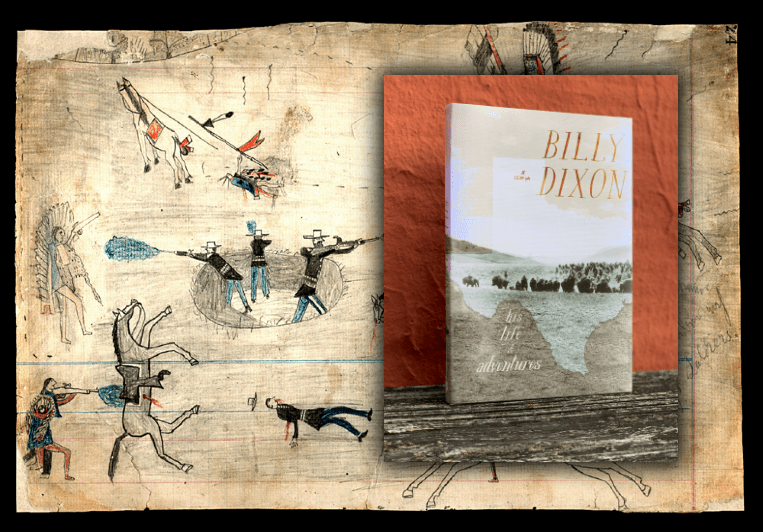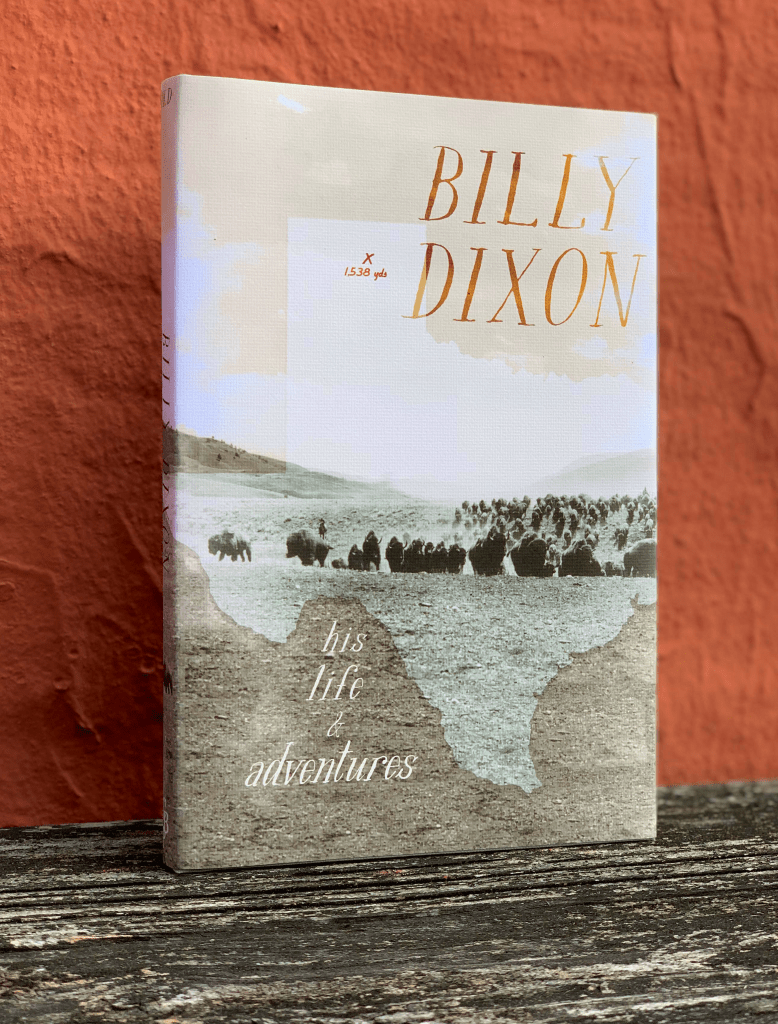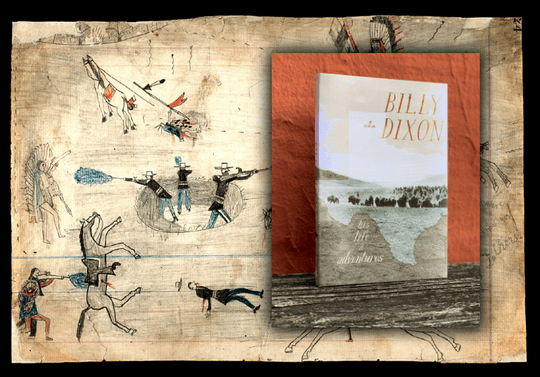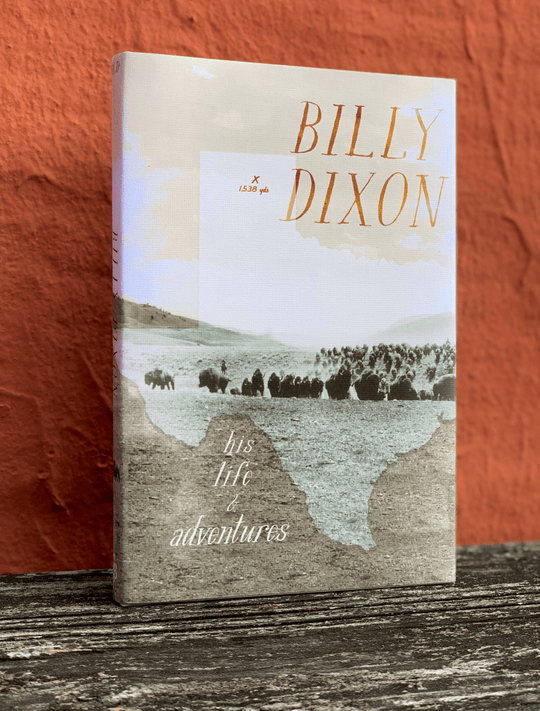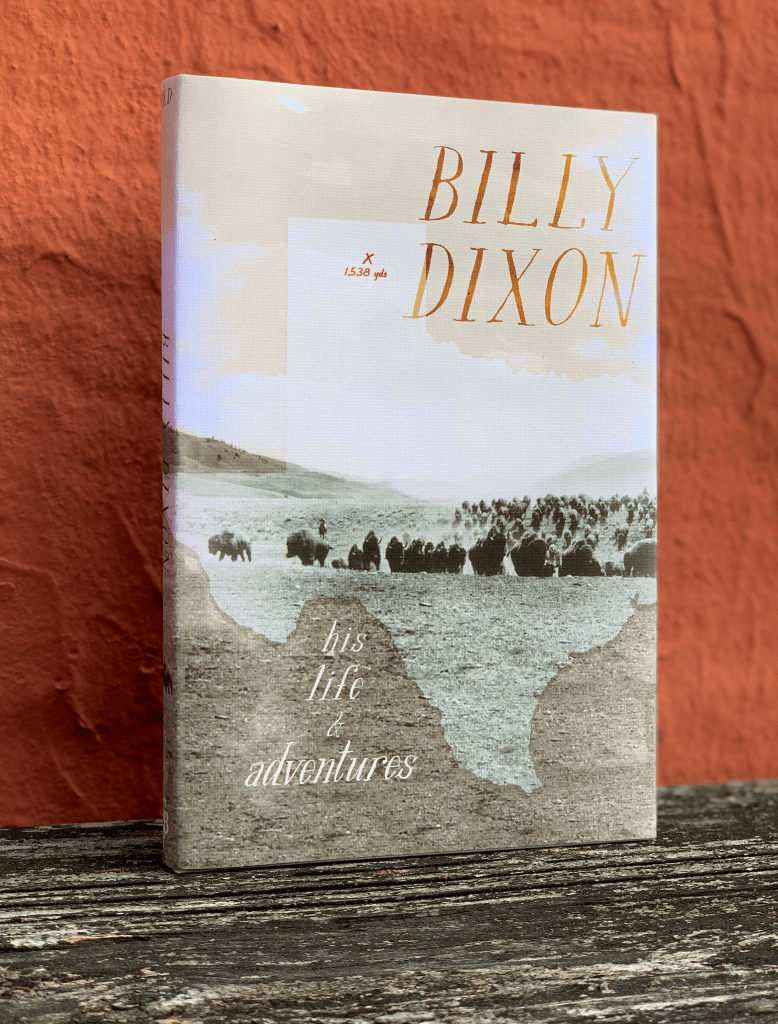Billy Dixon - His Life & Adventures
Thanks for signing up for restock notifications!
There was an error signing up for restock notifications. Please try again.
Sign up for restock notifications
Notify Me
Regular price44.95
/
Do You Know Billy?
It happened near Gageby Creek, south of the Washita, in what is now Hemphill County. That's in the Panhandle. It was the 12th day of September. 1874.
Colonel Nelson Miles had sent out scouts Billy Dixon and Amos Chapman, along with four troopers, with dispatches to Camp Supply concerning a delayed supply train.
On the morning of their second day out, the six men found themselves surrounded by over 100 Kiowa and Comanche warriors.
With no shelter to make a run for, they dismounted to make what all assumed was a last stand. They were determined to make the Indians pay a high price for their scalps.
Their horses stampeded, leaving them with only their arms and ammunition. While the Indians circled, charged and fired, Billy Dixon and three others gradually made their way to a shallow buffalo wallow about ten feet in diameter.
But that left Chapman and Private George W. Smith wounded out in the open.
Here's what Billy Dixon did about that:
"We were keenly aware that the only thing to do was to sell our lives as dearly as possible. We fired deliberately, taking good aim, and were picking off an Indian at almost every round. The wounded men conducted themselves admirably, and greatly assisted in concealing our crippled condition by sitting upright, as if unhurt, after they reached the wallow. This made it impossible for the Indians accurately to guess what plight we were in.Had they known so many of us were wounded undoubtedly they would have rode in and finished us. After all had reached the wallow, with the exception of Chapman and Smith, all of us thinking that Smith was dead, somebody called to Chapman to come on in. We now learned for the first time that Chapman's leg was broken. He called back that he could not walk, as his left knee was shattered.I made several efforts to reach him before I succeeded. Every time the Indians saw me start, they would fire such a volley that I was forced to retreat, until finally I made a run and got to Chapman. I told him to climb on my back, my plan being to carry him as I would a little child. Drawing both his legs in front of me, and laying the broken one over the sound one, to support it, I carried him to the wallow, though not without difficulty, as he was a larger man than myself, and his body a dead weight. It taxed my strength to carry him."
For that act of heroism, as well as other deeds during the fight, Billy Dixon was awarded the Medal of Honor. Billy Dixon and Amos Chapman are two of only eight civilians ever to receive our nation's highest award for valor.
Maybe you already heard of Billy Dixon. If you have, you probably know him for the shot he made at the second battle of Adobe Walls, which is also up in the Panhandle and also happened in 1874. (1874 was a busy year for Billy.)
It was twenty-eight men and one woman against a force of Comanche, Cheyenne and Kiowa numbering at least 700.
Billy Dixon, using a borrowed Sharps .50-90, picked a brave off his horse at such a range that the Indians were spooked and decided to pack it in. US Army surveyors later measured that shot at 1538 yards. That’s 9/10ths of a mile.
Billy said it was luck. Maybe so, but it takes rare skill to make that kind of luck possible. Thing is, if all you know about Billy Dixon is his marksmanship, you are missing the best things about knowing him. Which in my mind are his love of freedom and his ability to put it into words.
He understood from boyhood that freedom came with responsibility, and he was willing to pay the price.
“There was just a handful of us out there on the Plains, each bound to the other by the common tie of standing together in the face of any danger that threatened us. It was a simple code, but about the best I know of.”
He was by no means an educated man, but he could tell you what he felt.
“The air was fresh and invigorating, the grass was green, the flowers were blooming, the sky was clear, the sunshine pleasant, and a feeling of joy and happiness everywhere. Those were splendid nights, out there under the stars. The mornings came with dazzling splendor. At this season sunrise on the plains presented a scene of magnificence. I always had the feeling that it came with a thunderous sound.”
Physical Details
- Billy Dixon - His Life & Adventures
- Hardcover
- Satin finish jacket
- 180 pages
- Pure Adventure


